
At some point, you may have been told that you should eat more fish or possibly add fish oils to your diet. Or you may have seen my Instagram stories about how I eat sardines and why we should all be gorging ourselves on these tiny fish. Although I love fish, my family has been more resistant to eating our friends from the sea. We used to tell my youngest child that any fish meal we ate was actually chicken – such as chicken from Tilapia, Ohio or from RedSnapper, Indiana. He felt that this explanation clarified why various chicken dishes looked and tasted somewhat different. We got away with this for a surprisingly long time until one of the older siblings spilled the beans. Then my husband watched a documentary on the commercial fishing industry and was so appalled that he refused to eat fish for 6 months. So why was I continually looking for ways to get fish or fish products in our diet? Omega-3s of course.
Omega-3s are unsaturated fatty acids that are an essential part of our diet – the body cannot produce them and they are vital to a number of processes in our body. There are 3 main types, one of which is derived from plants and the other 2 from fish.
Types of Omega-3s
Alpha-linolenic acid (ALA) is a plant form of omega-3. It’s found in flaxseed, chia seed, walnuts, and canola and soybean oils. ALA is important because it can only be obtained from the diet. Our bodies can’t make ALA, which makes it an essential fatty acid (EFA).
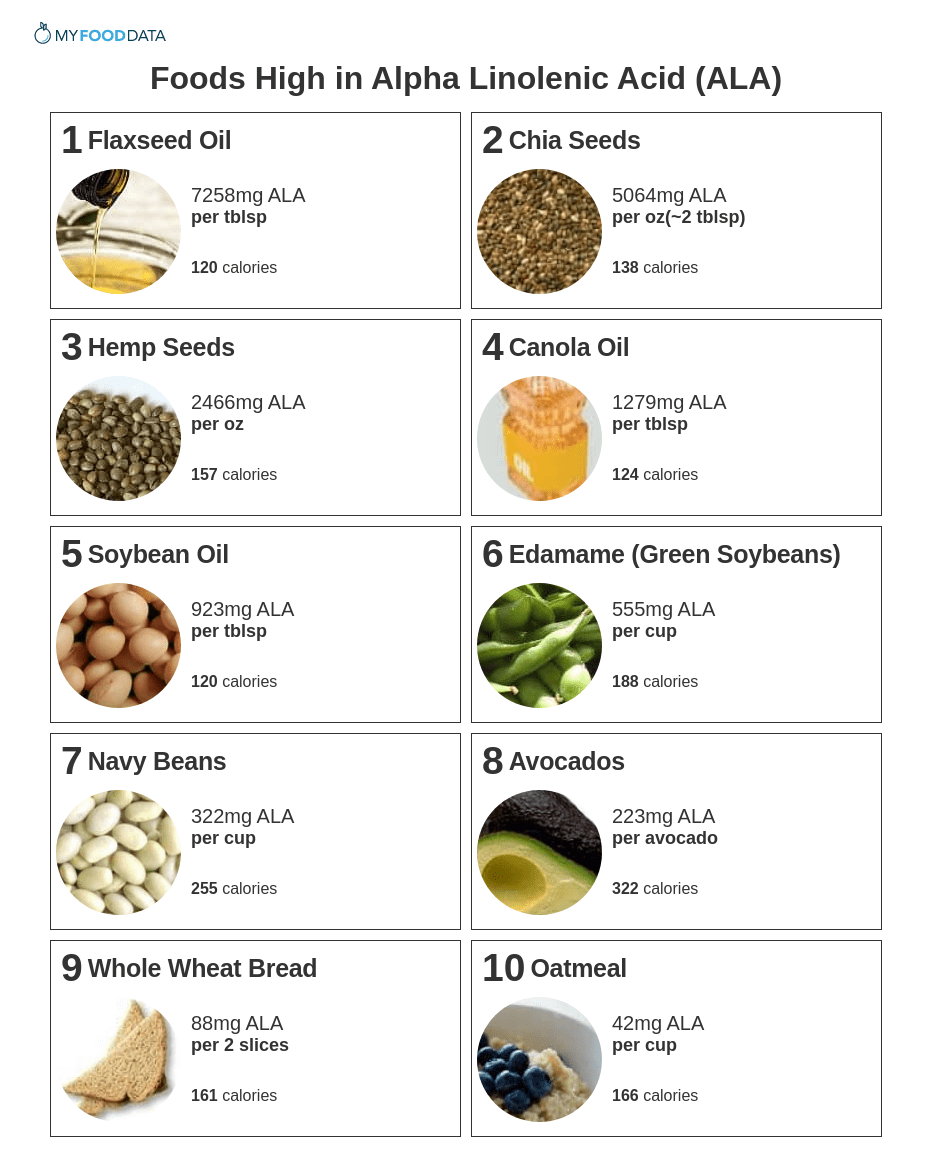
Eicosapentaenoic acid (EPA) and docosahexaenoic acid (DHA) are the marine forms of omega-3s, commonly found in cold-water fatty fish like salmon, herring, sardines, and mackerel. These fatty acids can be made from ALA in the body, but the conversion rate is poor so we must get most of them from our diet. These 2 poly-unsaturated fatty acids (PUFAs) found in fish (EPA and DHA) are the ones found to be the most beneficial for their anti-inflammatory properties.
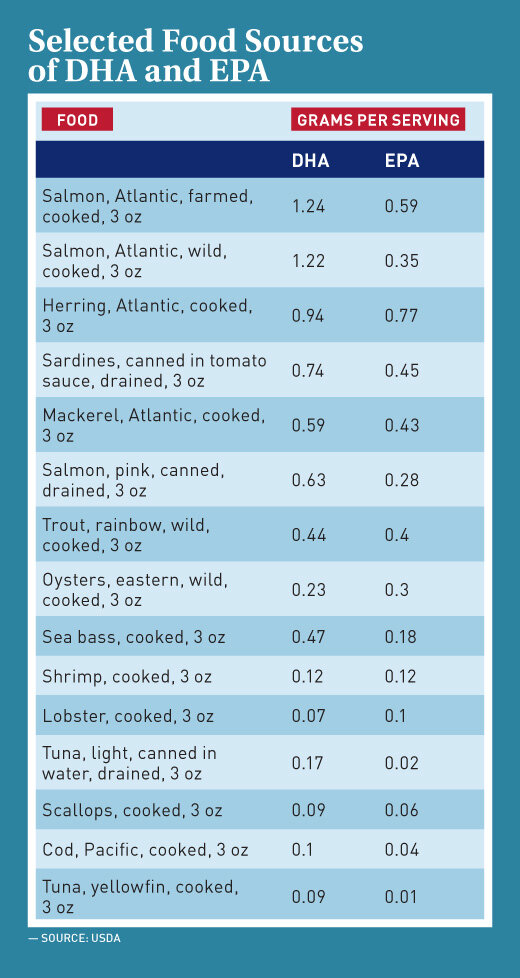
Omega-3 Functions
Omega-3s function to regulate the immune system by controlling cells that cause inflammation and producing proteins that slow the inflammatory process. In the skin, omega-3s have been found to improve barrier function, inhibit inflammation particularly from UV light, and promote skin healing. The body incorporates dietary fatty acids into cell membranes. When a cell membrane is healthy, the cell can hold water. In the skin, this results in cells being hydrated and soft. Below is an image of a skin cell with a lipid bilayer. The lipid bilayer is where omega-3 fatty acids congregate.

Eczema Reduction
A number of studies have shown that the use of omega-3 supplements for eczema reduces symptoms, particularly itch-related scratching, but the results have been inconsistent. In a study of 3,285 Swedish children, researchers found that regular fish consumption early in life may reduce the risk of allergies up to the age of 12, particularly rhinitis and eczema. It is unclear if consumption of oily fish or Omega-3 supplementation gives the same benefit. More general studies clearly show omega-3 supplements reduce inflammation in the body and have cardiovascular benefits. Thus omega-3s are a mainstay of treatment for my eczema patients.
Anti-Aging
Omega-3 fatty acids also help reduce the production of inflammatory compounds that contribute to the aging process. Also in the anti-aging realm, fish oil could potentially help reduce hyper-pigmentation. Omega-3 may minimize wound infections and speed up healing, which is useful in cases of hyper-pigmentation that are due to skin trauma. Also, evidence exists that fish oil may be beneficial in the treatment of acne which can also cause long-term skin trauma.
ADHD Reduction
Omega-3s alter cellular membranes in the central nervous system and may help with brain processes in people with attention-deficit hyperactivity disorder (ADHD). In a 2018 review, international experts advised that omega-3 supplements may produce small but significant reductions in ADHD symptoms while having a tolerable safety profile.
Too Much Omega-6
These benefits of Omega-3s are in contrast to Omega-6 which is another essential fatty acid found in vegetable oils, nuts and seeds. Although Omega-6 has benefits in the body, it actually can turn on inflammation. Arachidonic acid (AA), an omega-6, can increase immunoglobulin E (IgE) antibodies which are pivotal to allergic reactions and sensitivities. Omega-3 may displace the AA and reduce the inflammatory proteins, therefore reducing the risk of allergic reactions.
Omega-6 is meant to work in close harmony with Omega-3 in regulating inflammation. Early humans typically ate a ratio of 1:1 Omega-6 to Omega-3. Our western diet has now ballooned that ratio to almost 30:1 with Omega-6 compromising a large portion of our diet. This is largely due to the fact that vegetable oil, corn oil, sunflower oil, safflower oil and its other counterparts are put in a majority of our processed foods (think packaged snacks). This abnormal ratio may play a major role in the pro-inflammatory state of most Americans.
The chart below shows just how lopsided these ratios have become in many common cooking oils.
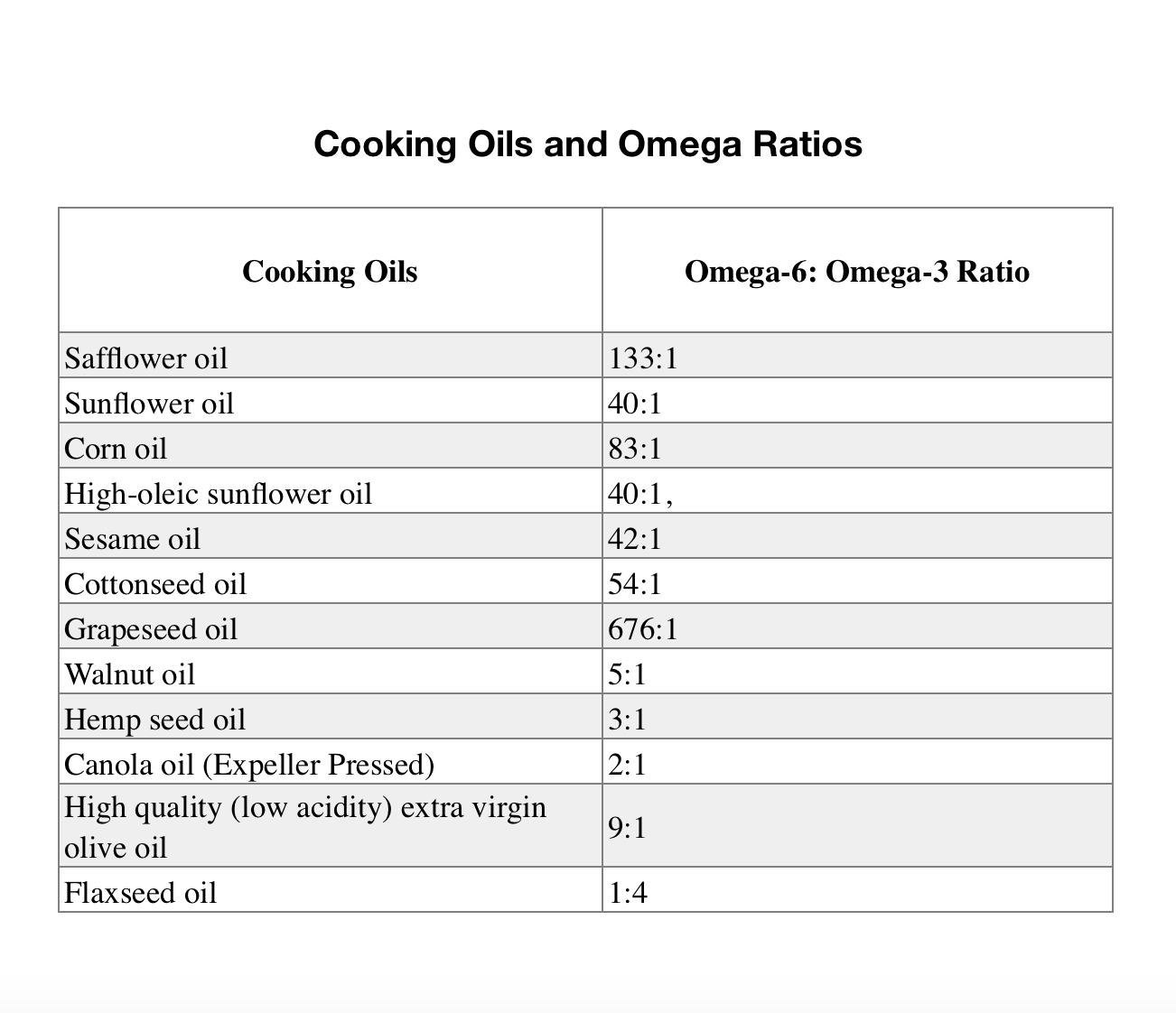
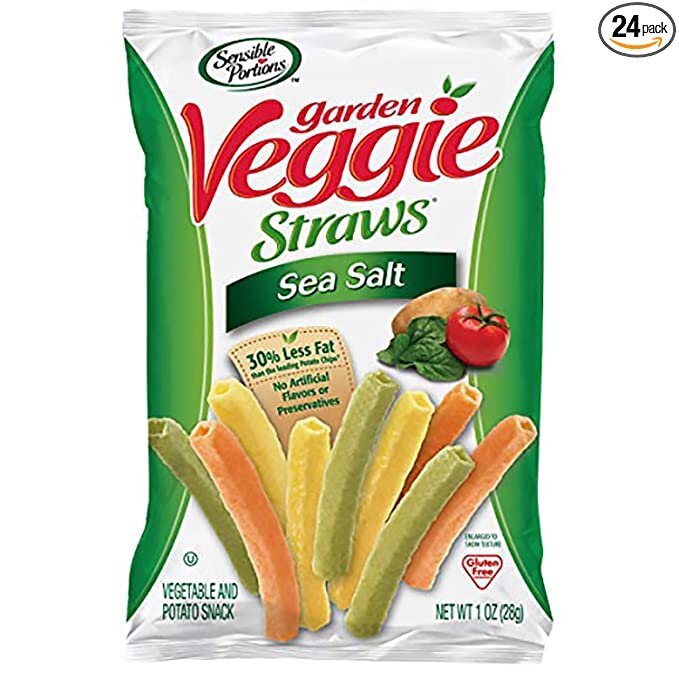

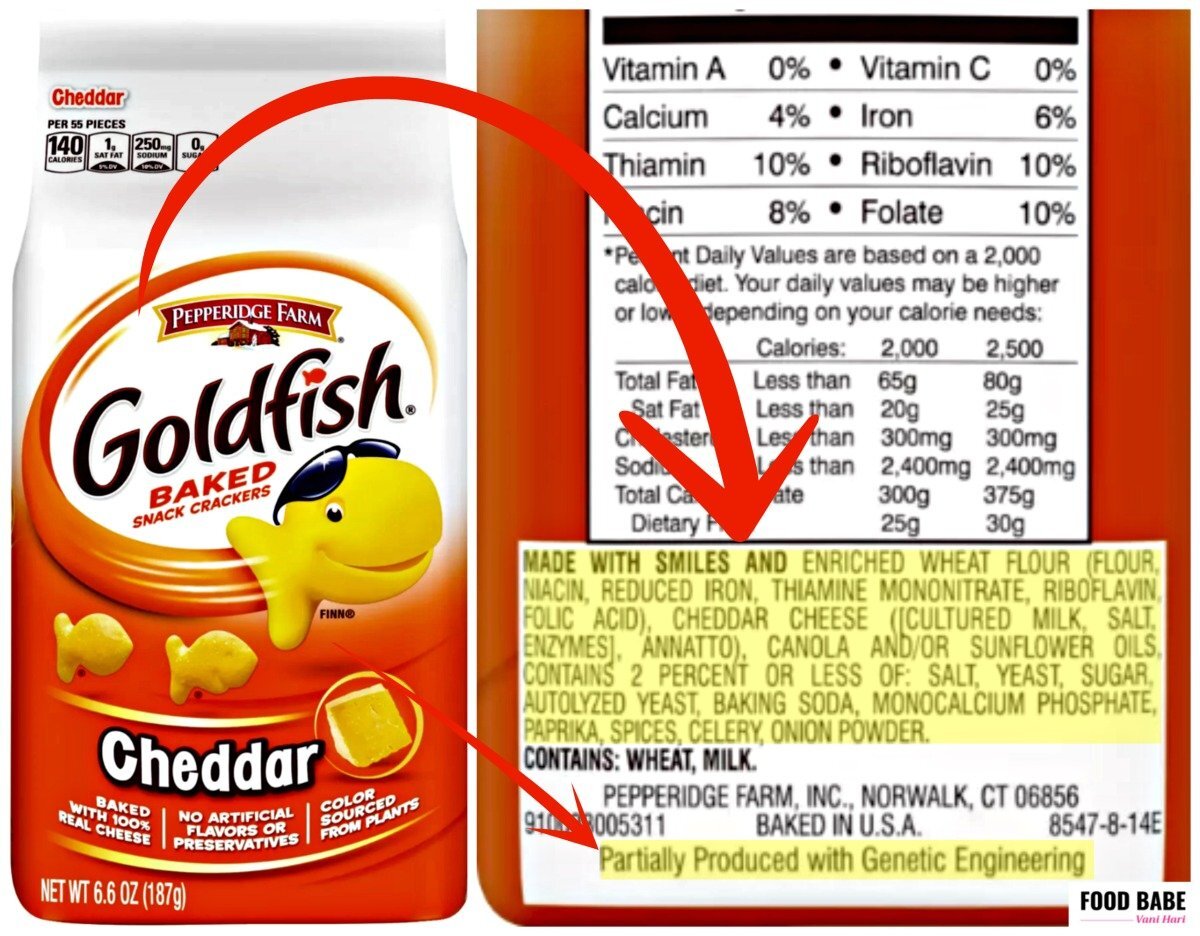
Omega-3 Supplement Options
In choosing an Omega-3 supplement there are several options, but in general, we want to get lots of the DHA and EPA variety of omega-3. Fish oil, made from the flesh of fatty fish like salmon or mackerel, is the most common supplemental form of omega-3s and contains EPA and DHA. It can be liquid or gel capsules.
Another specific type of fish oil is cod liver oil, which is made from the livers of cod which is not a fatty fish. One benefit of cod liver oil is that it also contains vitamin A, D, and E, all of which are beneficial to eczema.
For my vegan families, another option is algal omega-3. These are made from the same algae fish eat, providing them with the high levels of DHA and EPA we see in fish oils. The amount of DHA and EPA in the algal sourced omegas is a bit lower, so it may involve taking additional capsules for the desired dose. Don’t forget that dried seaweed snacks are a great source of plant-based omegas, as is flaxseed oil.
Potential Omega-3 Dosages:
Fish oil supplements are, in general, very well-tolerated. If you get “fish burps,” try freezing your fish oil capsule before eating. High doses may cause nausea and loose stools, and occasionally easy bruising or bleeding.
The dosages I recommend for my patients vary widely, depending on what else may be going on with their health. And for patients with chronic concerns like asthma, autoimmune conditions, ADHD, anxiety or autism, I may use higher dosages. The following potential doses for immune response are based on ALA as per NIH (link): (For infants, the following dosages apply to total omega-3s. For ages 1 and older, they apply only to ALA because ALA is the only omega-3 that is essential. NIH did not establish specific intake recommendations for EPA, DHA or other LC omega-3s)
- 0-1 years: 500mg daily
- 1-3 years: 700mg daily
- 4-8 years: 900mg daily
- 9-13 years: 1000 – 1200mg daily
- 14-18 years: 1100 – 1600mg daily
- 19+ years: 1100-1600mg daily
EPA and DHA Combined Dosing I use in my clinical practice
- 0-1 years: 50-100mg daily
- 1-5 years: 500-1000mg daily
- 6-12 years: 1000-2,000mg daily
- 13-18 years: 2,000mg daily
- 19+ years: 2000mg+ daily
Dr. Temple -Approved Omega-3 Supplements:
- Designs for Health OmegAvail Smoothies
- Designs for Health Omega Oil
- Davinci Labs Kiddomega-3 Oil
- Nordic Naturals ProOmega 2000 and 2000Junior
- Most Nordic Naturals fish oils (just NOT the gummies, please)
Yours in Good Health,
Dr. Temple





